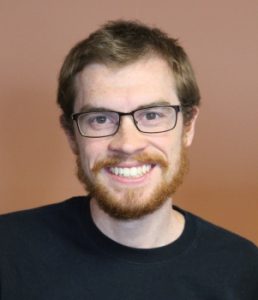
The Department of Energy’s (DOE) Office of Science announced the selection of 83 scientists — including University of Wisconsin–Madison physics professor Keith Bechtol — to the Early Career Research Program.
The funding will allow Bechtol and his group to first work on commissioning the Vera C. Rubin Observatory in preparation for the Legacy Survey of Space and Time (LSST), then they will transition to data collection and analysis for their cosmology research.
“We are anticipating that LSST will catalog more stars, more galaxies and more solar system objects during its first year of operations than all previous telescopes combined,” Bechtol says.
Rubin Observatory’s telescope will have an eight-meter diameter mirror and a ten square degree field of view. The 3.2-billion-pixel camera will collect an image every 30 seconds. All told, LSST will amass around 10 terabytes of data every night.
Bechtol has leadership roles for building and commissioning the observatory as well as with the Dark Energy Science Collaboration (DESC), the international science collaboration that will make high accuracy measurements of fundamental cosmological parameters using LSST data. At least seven other collaborations have formed around different science areas to analyze the data. Rubin Observatory is preparing to serve the LSST data to many thousands of scientists in the US, Chile, and at international partner institutions around the world.
“DESC will use LSST data to address several outstanding physics questions, such as: Why are the distances between galaxies growing at an accelerating rate? What is the fundamental nature of dark matter? What is the absolute mass scale of neutrinos? How did the universe begin and what were the initial conditions?” Bechtol says.
Bechtol will receive around $150,000 per year for five years to cover summer salary and research expenses. The research expenses will be used mostly to cover the analyses after the data collection starts. However, because there cannot be useful data without the initial commissioning and science validation steps — and because the Observatory is still a couple of years away from first light — the DOE award is also supporting Bechtol’s efforts during the commissioning phase to accelerate the realization of DESC science goals.
“For me, the most important thing about this award is that it will provide more opportunity for students and postdocs to directly contribute to this ambitious experiment. Turning on a new experiment of this scale and complexity doesn’t happen every day,” Bechtol says. “For my research group to be able to participate firsthand in the commissioning, seeing first light, and contributing to the first cosmology results is so valuable from a career development perspective. We are training the next generation of experiment builders.”
The DOE early career program is open to untenured, tenure-track professors at a U.S. academic institution (or a full-time employee at a DOE national laboratory) who received a PhD within the past 10 years. Research topics are required to fall within one of the DOE Office of Science’s eight major program offices, including high energy physics, the program through which Bechtol’s award was made.